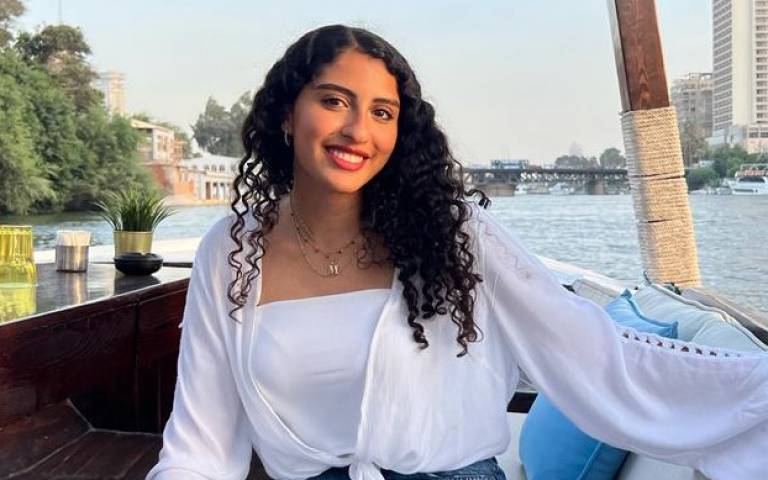Women and Girls in Science 2023: Mariam Ali
10 February 2023

This International Day of Women and Girls in Science, we're showcasing three members of our fantastic community.
We asked Mariam Ali, 2nd year student on MEng Biomedical Engineering, what inspired her to choose this field, what are the biggest challenges facing women pursuing a career in science and what advice she would give to other girls thinking about getting into STEM.
What makes you most excited about your area of study?
I think the interdisciplinary nature of Biomedical Engineering makes me most excited about studying it. It combines so many different subjects that it makes it so exciting as there’s always something to learn about. Because of this, the Biomedical engineering industry is very exciting where new developments are constantly being made, making it an ever-evolving field. I think knowing what I am studying and learning about is being implemented to improve people’s quality of life is very exciting and motivating!
What or who inspired you to study this field?
I have always enjoyed maths and science throughout my time at school, so I was inclined to study engineering. I discovered biomedical engineering after I saw a coronary stent for the first time at a science fair in year 10. I was mesmerised by this small but intricately designed device and its pivotal role in the treatment of heart health. Upon knowing that my grandfather has two stents inserted in his heart, I was passionately driven to learn about them even more. I read about their material selection, strut design and functionality. I became fascinated by medical technology and how biomedical engineering can be used to improve patient outcomes.
What do you think is the biggest challenge for women in science?
I think the biggest challenge for women in science is representation. The science and STEM industry is a male-dominated environment. As a result, many women can feel imposter syndrome when there aren’t other examples of women that have been accomplished in their field. I think that through better representation, a more inclusive, safe, and supportive work environment can be achieved for women in science.
What advice would you give to young girls thinking about studying science?
I would advise young girls considering studying science to explore as many things as possible. Try to get involved with as many STEM initiatives as you can, like science projects, taster sessions, work experience, etc. Personally, completing projects and attending taster days helped me learn about what my interests and strengths were when I was younger. Through doing this, you will gain knowledge and confidence in what you’re interested in!
Is there a female scientist who has inspired you?
There are many inspirational female scientists. If I have to choose one, it would be Dr Sameera Moussa, the first female Egyptian nuclear physicist. She was also the first woman to become an assistant professor and hold a teaching position at Cairo University in Egypt. Dr Moussa conducted research into the medical applications of nuclear technology with the goal of making nuclear cancer treatment accessible and advocated for the peaceful use of nuclear technology through the organisation of international conferences and committees. She wished that “The nuclear treatment for cancer be as affordable and cheap as aspirin". I am inspired by her dedication and accomplishments in her field.
 Close
Close

